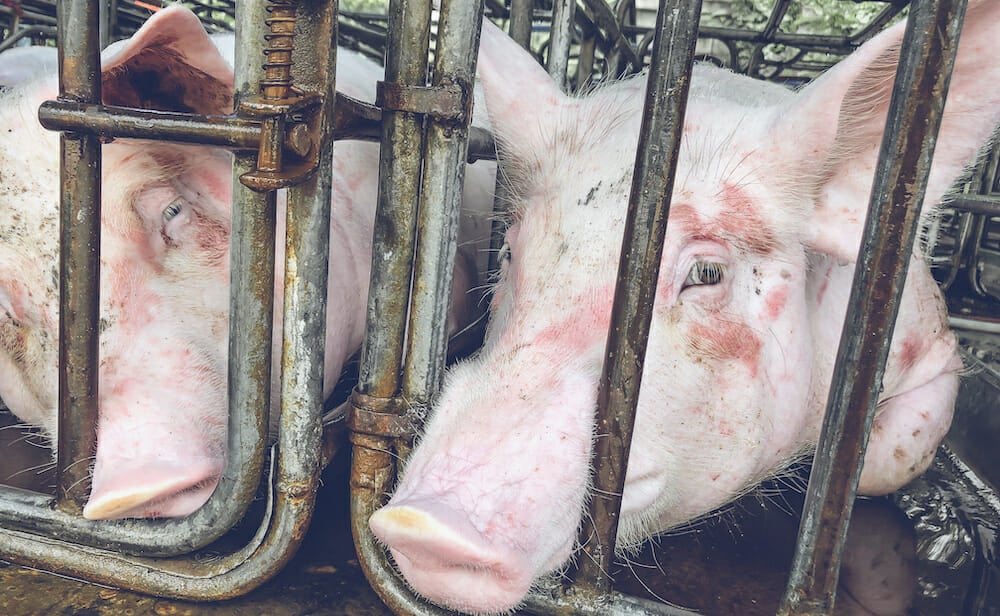Three recent legal decisions upheld that defenseless hens, pigs, and calves don’t deserve to needlessly suffer or be intensively confined while they await slaughter.
In a sweeping victory for animals, a federal judge upheld a California law that bans the intensive confinement of egg-laying hens, mother pigs, and calves harvested for veal.
Proposition 12, voted into law by state residents in 2018, protects millions of farmed animals from cruel confinement. Slated to go into effect next year, the legislation already has faced numerous challenges from the meat industry.
The U.S. Ninth Circuit Court of Appeals recently rejected three such challenges against Proposition 12, including those from the National Pork Producers Council and the American Farm Bureau Federation that alleged the law is unconstitutional.
The North American Meat Institute (NAMI) also challenged the law, which is scheduled to take effect Jan. 1, 2022. But the Supreme Court upheld an appellate court’s denial of NAMI’s claims and affirmed the right to create laws to protect animals and public health and safety.
The nonprofit Animal Outlook opposed these challenges from the meat industry on behalf of the State of California, with help from a coalition of nonprofits including Animal Equality, Animal Legal Defense Fund, Compassion in World Farming, Farm Sanctuary, the Humane League, and the Humane Society of the United States.
Meanwhile, a federal district court judge in New York rejected the United States Department of Agriculture’s (USDA) attempts to overturn two lawsuits that Animal Outlook filed to protect slaughter-bound pigs from suffering.
The lawsuits challenge the USDA’s deregulation of pig slaughterhouses, which allowed these cruel facilities to operate at unchecked speed and decreased the number of federal inspectors overseeing operations, as well as the USDA’s denial of protection to “downed” pigs who cannot stand or walk due to injury or illness, making them especially vulnerable to slaughterhouse cruelty.
These cases will now proceed to trial, thanks to the judge’s decisions against the USDA and Animal Outlook’s perseverance.







